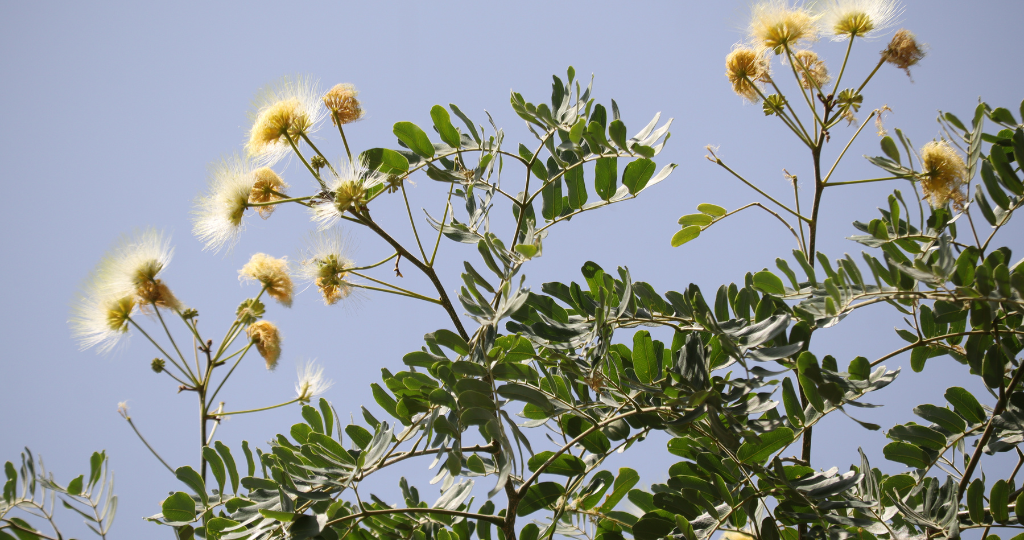
Adusa, Vasa or Vasaka: Benefits & Uses & Side Effects
What is Adusa or Vasaka Plant?
Adusa, scientifically known as Justicia adhatoda, is a versatile and medicinal plant often used in traditional remedies. Native to Asia, it's recognized for its anti-inflammatory, antioxidant, and respiratory health benefits. With attractive lance-shaped leaves and a hardy nature, Adusa is a valuable addition to home gardens and a source of natural well-being.
- Hindi Name: Adusa/Vasaka
- Sanskrit Name: Vasa
- English Name: Malabar Nut
- Latin Name: Adhatoda vasica Nees
10+ Evidence-Based Benefits of Adusa Plant
- Reduce inflammation: Adusa's anti-inflammatory properties are valuable for conditions like arthritis. Mitigating inflammation and associated discomfort promotes joint health, offering a natural remedy for those seeking relief from inflammatory disorders and enhancing overall mobility and well-being.
- Helps in oxidative Stress: As a potent antioxidant, Adusa serves as a cellular defender against oxidative stress. Its ability to neutralize free radicals safeguards cells, supporting overall cellular well-being, long-term health, and resilience against oxidative damage.
- Helps in Liver functions: Adusa plays a crucial role in supporting liver function. By aiding detoxification processes, it contributes to the prevention of liver damage, promoting long-term liver health. This makes Adusa a valuable natural ally in maintaining the health and functionality of this vital organ.
- Lowers the risk of Cardiovascular diseases: With cardio-protective effects, Adusa becomes a beneficial agent in cardiovascular health. It helps regulate blood pressure, improves cardiovascular function, and reduces the risk of heart diseases, supporting overall heart health and contributing to a healthier cardiovascular system.
- Manage blood sugar levels: Adusa's anti-diabetic properties are instrumental in effective blood sugar management. Enhancing insulin sensitivity and glucose metabolism holds potential benefits for individuals with diabetes, contributing to stable blood sugar levels and overall metabolic well-being.
- Enhance the immune system: Adusa's immune-modulating properties promote a balanced response to infections, reducing the risk of illnesses. Its support for overall immune function improves health and well-being, making Adusa a natural ally in maintaining a robust and responsive immune system.
- Prevents cancer: With anti-cancer potential, Adusa inhibits cancer cell growth, reducing the risk of certain cancers. As a preventive measure against carcinogenesis, Adusa showcases promise in supporting cancer prevention strategies, contributing to long-term health and well-being.
- Good for Respiratory: Adusa's support for respiratory health is evident in its ability to alleviate respiratory issues, improve lung function, and provide relief from conditions like asthma or bronchitis. This contributes to overall lung well-being, making Adusa a natural choice for respiratory health support.
- Act as Pain reliever: With natural analgesic effects, Adusa acts as a reliable pain reliever. Whether addressing headaches, muscle aches, or joint pain, it offers a natural alternative for pain management, providing relief and enhancing overall comfort without synthetic medications.

- Helps in Gastrointestinal issues: It addresses gastrointestinal problems by promoting a healthy digestive system. By relieving symptoms of indigestion and offering relief from issues like bloating and constipation, it contributes to overall digestive well-being, making it a natural choice for gastrointestinal health support.
How Does Adusa Work for Health Issues?
Adusa works for health issues by leveraging its natural properties to address specific concerns in the body. Its anti-inflammatory nature helps ease conditions like arthritis, reducing joint discomfort. As a powerful antioxidant, Adusa defends cells from damage caused by free radicals, promoting overall cellular well-being. For liver health, it aids detoxification processes, potentially preventing damage. With cardio-protective effects, it regulates blood pressure and improves heart function, lowering the risk of cardiovascular diseases. Adusa's anti-diabetic properties manage blood sugar levels, benefiting those with diabetes.
By modulating the immune system, Adusa supports a balanced response to infections, reducing the risk of illnesses. Its anti-cancer potential involves inhibiting cancer cell growth as a preventive measure against certain cancers.
Overall, Adusa contributes to various aspects of well-being through its diverse health-promoting properties.
Top Ways You Can Use Adusa
The following are the ways you can use Adusa:
- Add adusa leaves to soups, curries, and stews for flavor and nutrients.
- Use adusa powder in rubs and marinades for meats and vegetables.
- Steep adusa leaves to make antioxidant-rich tea.
- Take adusa extract capsules to boost immunity and heart health.
Other Medicinal Plants:
Demystifying The Top Adusa Myths and Adusa Facts

Here's presenting the myths and facts associated with Adusa:
Facts About Adusa
- Adusa is a perennial flower native to tropical and subtropical climates, recognized by its bright red petals and green foliage.
- Extracts and preparations using Adusa have been used for centuries in various traditional medicinal practices for ailments from inflammation to gastrointestinal issues.
- The vibrant red pigments in Adusa flowers contain potent antioxidant compounds studied for significant health and protective benefits, like strengthening immune function and preventing cell oxidation.
- Adusa extracts demonstrate antibacterial and anti-inflammatory properties in laboratory trials, inhibiting pathogens, reducing swelling, and easing digestive issues.
- When consumed responsibly in moderate amounts, various Adusa preparations have exhibited therapeutic effects with a relatively low risk of serious side effects for most healthy adults.
Myths About Adusa
- Adusa causes hallucinations or psychedelic experiences.
- Consuming Adusa is extremely dangerous and often lethal.
- Adusa is highly addictive, both psychologically and physiologically.
Tips on Growing Adusa Plant at Home
Growing Adusa at home can be rewarding, providing a natural source of medicinal benefits. To cultivate Adusa successfully, consider the following tips. Adusa thrives in well-draining soil with a slightly acidic to neutral pH. Planting in a location with partial sunlight is ideal, as it prefers indirect sunlight over harsh, direct exposure. Regular watering is crucial, but ensure the soil doesn't become waterlogged, as Adusa doesn't tolerate excessive moisture. Adequate spacing between plants allows for proper air circulation, reducing the risk of diseases. Pruning can help shape the plant and encourage bushier growth. Utilize a balanced fertilizer during the growing season to promote healthy development.
Adusa is relatively hardy, but keeping an eye out for pests and addressing them promptly is essential. Harvest the leaves when they are mature and use them fresh or dried for medicinal purposes. By following these tips, you can cultivate Adusa at home, enjoying its health benefits while adding a touch of greenery to your surroundings.
Our Thoughts
Adusa is an intriguing botanical with a long history of traditional uses that modern science is working to verify and expand. Striking the optimal balance of appreciating Adusa's legendary folklore while allowing evidence-based research to guide any applications wisely is key. With an open yet prudently critical perspective, adusa's other legendary potentials may continue unfolding to reasonably augment health - and history - for future generations.
FAQs
Q1. What benefits does adusa provide?
Adusa has anti-inflammatory, analgesic, antioxidant, and antimicrobial properties that can help treat pain, GI problems, immune function, and oxidative stress.
Q2. Is consuming adusa safe?
Adusa is generally safe in moderate amounts, but high doses can cause dizziness, nausea, and low blood pressure. Those with certain medical conditions should avoid adusa.
Q3. Can adusa interact with any medications?
Adusa may interact with antihypertensives, antidiabetic drugs, aspirin, and sedatives. Check with your doctor before taking adusa supplements.
Q4. What is the recommended dosage for adusa?
Most healthy adults can safely consume 300–500 mg/day of standardized adusa extract. Concentrated powder or tincture should be taken in much smaller doses.
Q5. What are the common side effects from taking adusa?
Some people may experience mild headaches, drowsiness, lightheadedness, dry mouth, or temporary skin irritation when using adusa products. Discontinue use if side effects are severe or persistent.





